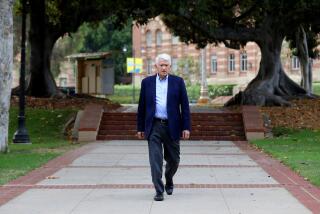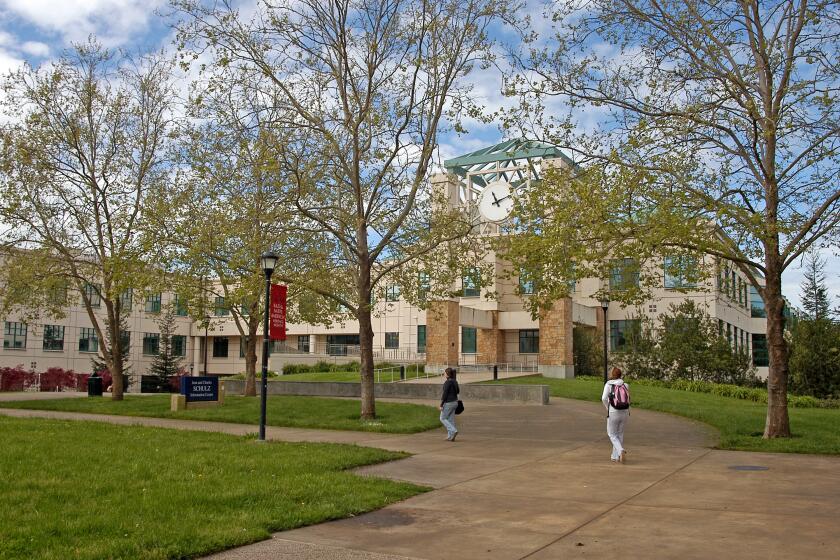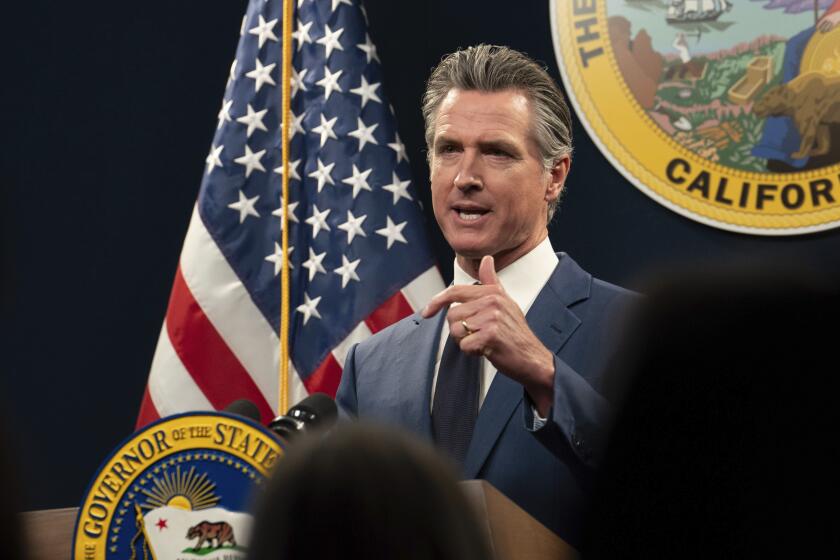Council Raises Utility Tax to Avoid Layoffs : Budget: Residents will pay a 10% levy, and businesses will pay 12%. The city faced a deficit of more than $5 million and would have had to furlough 72 workers.
In a move aimed at averting massive layoffs of city employees, the City Council this week raised the city tax on utility bills to 10% for residents and 12% for businesses.
The increase, approved in a 5-2 vote Monday, will cost the average household $50 a year and raise more than $3 million, city Treasurer Daniel J. Hempel said.
Faced with a budget shortfall of more than $5 million, City Administrator Julio Fuentes told the council in May that unless new revenue was found, the city would have to lay off 72 employees, including 17 police officers; leave 40 vacant positions unfilled; close the library on Mondays, and shut down two fire stations.
Completing their review of the budget this week, council members took no formal action to rescind layoff notices but indicated that there will be few, if any, layoffs in the Police and Fire departments, no fire stations will be closed and the library will stay open.
The council will have a public hearing on the proposed $171-million budget at 6:30 p.m. Monday.
The utility tax increase will ease the financial crunch, but unless the city raises additional revenue, some cutbacks in city services may still be necessary, city officials said. The council will consider additional tax and fee increases at Monday’s meeting when it votes on the budget.
Council members Tomas Ursua and Nell Soto voted against the utility tax increase this week, saying the council should have examined other alternatives before making that decision. Ursua said the city could have avoided laying off public safety workers by other means and that the tax increase will discourage business.
Soto said that although the city’s poorest residents are exempt from the utility tax, the increase will hurt many families who are struggling to get by financially.
The current tax on electric, gas and water bills is 8% for residents and 10% for businesses. Telephone bills are taxed at 9%.
Under the new rates, effective July 1, all utilities, including telephone service, will be taxed at 10% for residents and 12% for businesses. There is a $72,000 annual cap on business utility taxes, and 10 companies currently pay the maximum.
In addition, the tax on telephone service, which had been limited to calls within California, will be expanded to include out-of-state and international calls.
The council voted to impose the rates for two years, hoping that alternative sources of revenue, such as sales tax income from new businesses, can be generated to permit utility tax cuts in the future.
Mayor Donna Smith said “none of us like taxes” but the city must find new revenue to meet expenses that are rising from inflation and other factors. She said the utility tax “is the fairest tax because it reaches everyone in Pomona.”
Councilman Ken West said the city had to act to avert a budget crisis. Councilman Willie White said, “We find ourselves with our backs against the wall.”
More to Read
Start your day right
Sign up for Essential California for news, features and recommendations from the L.A. Times and beyond in your inbox six days a week.
You may occasionally receive promotional content from the Los Angeles Times.






